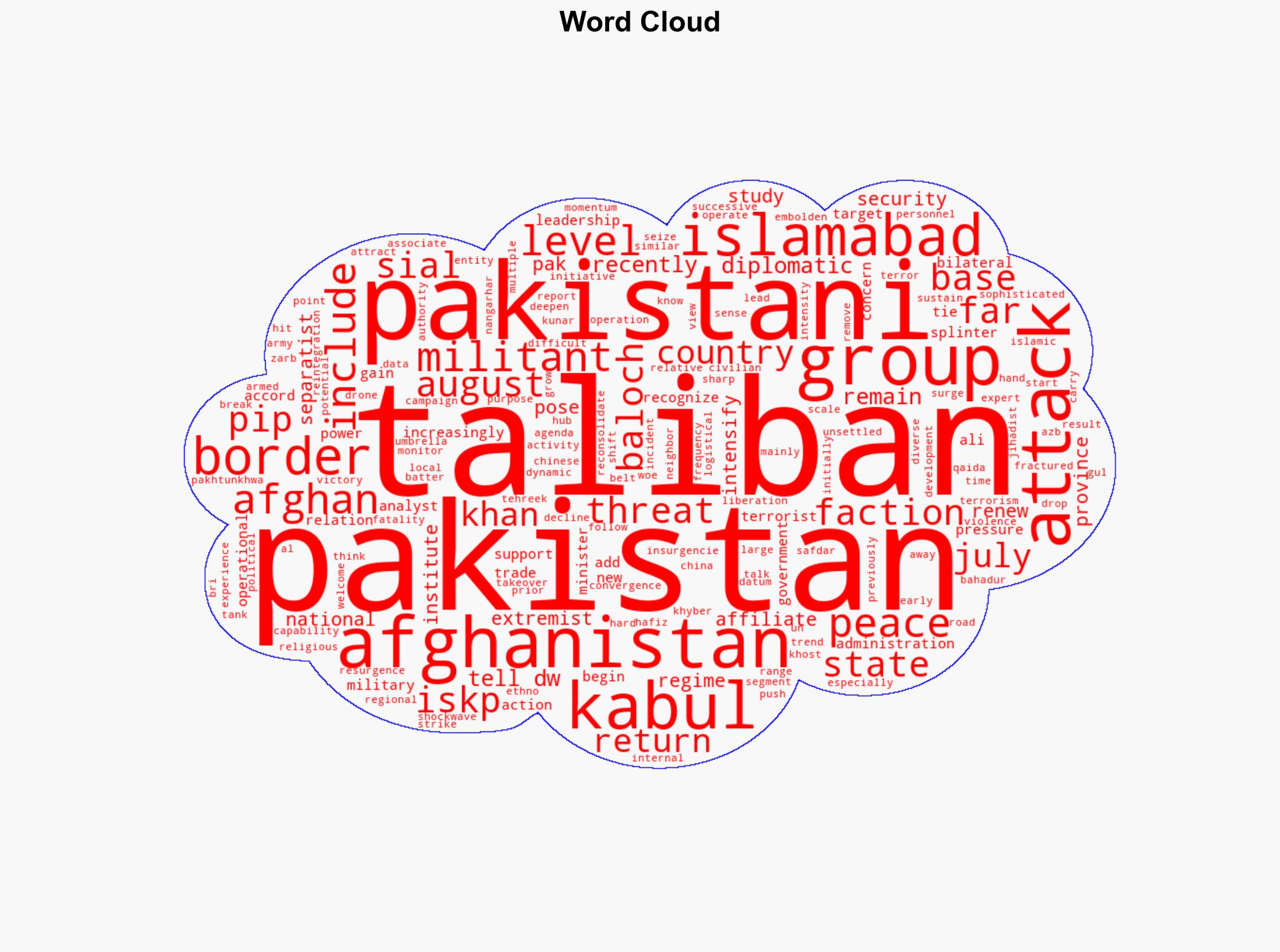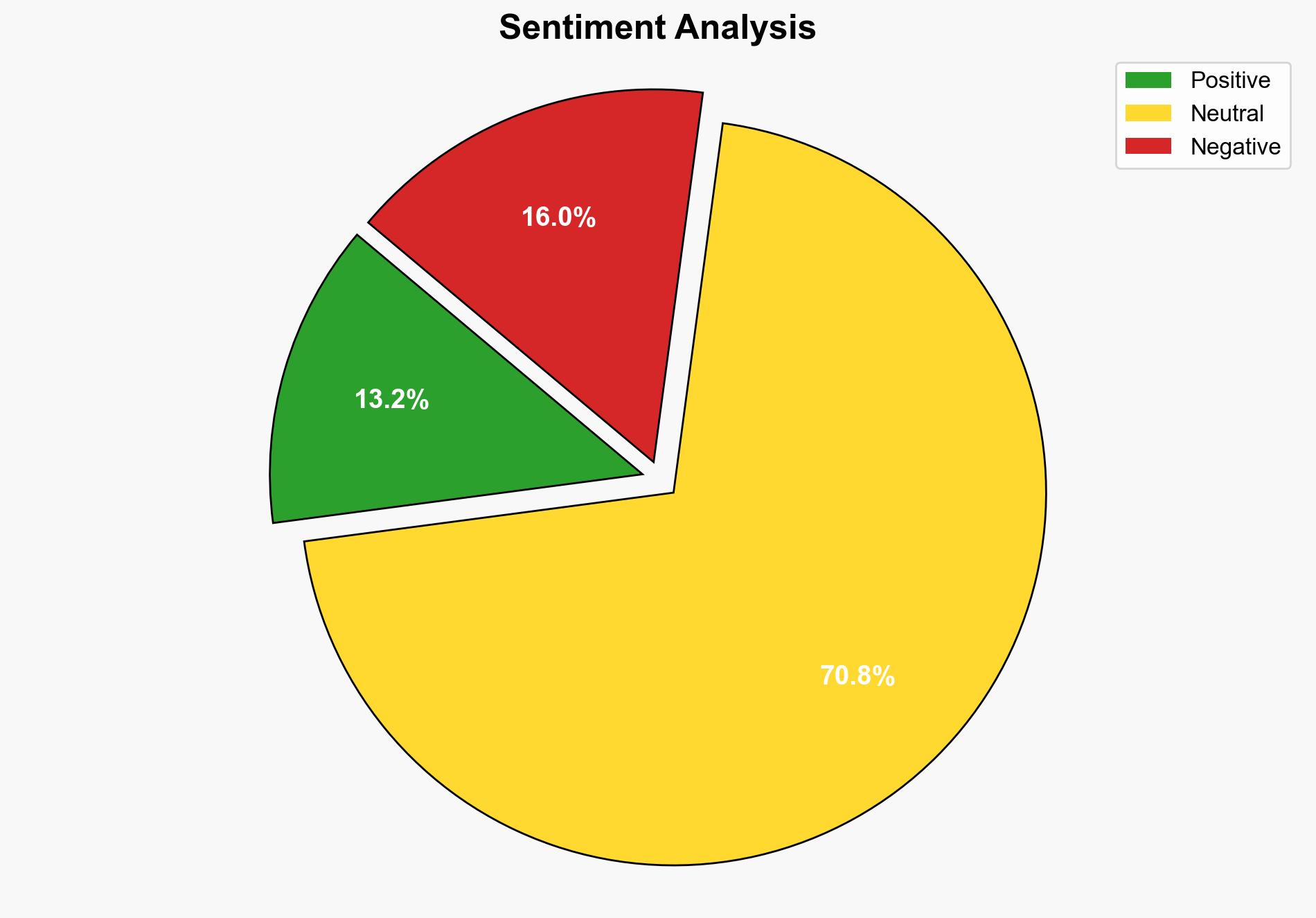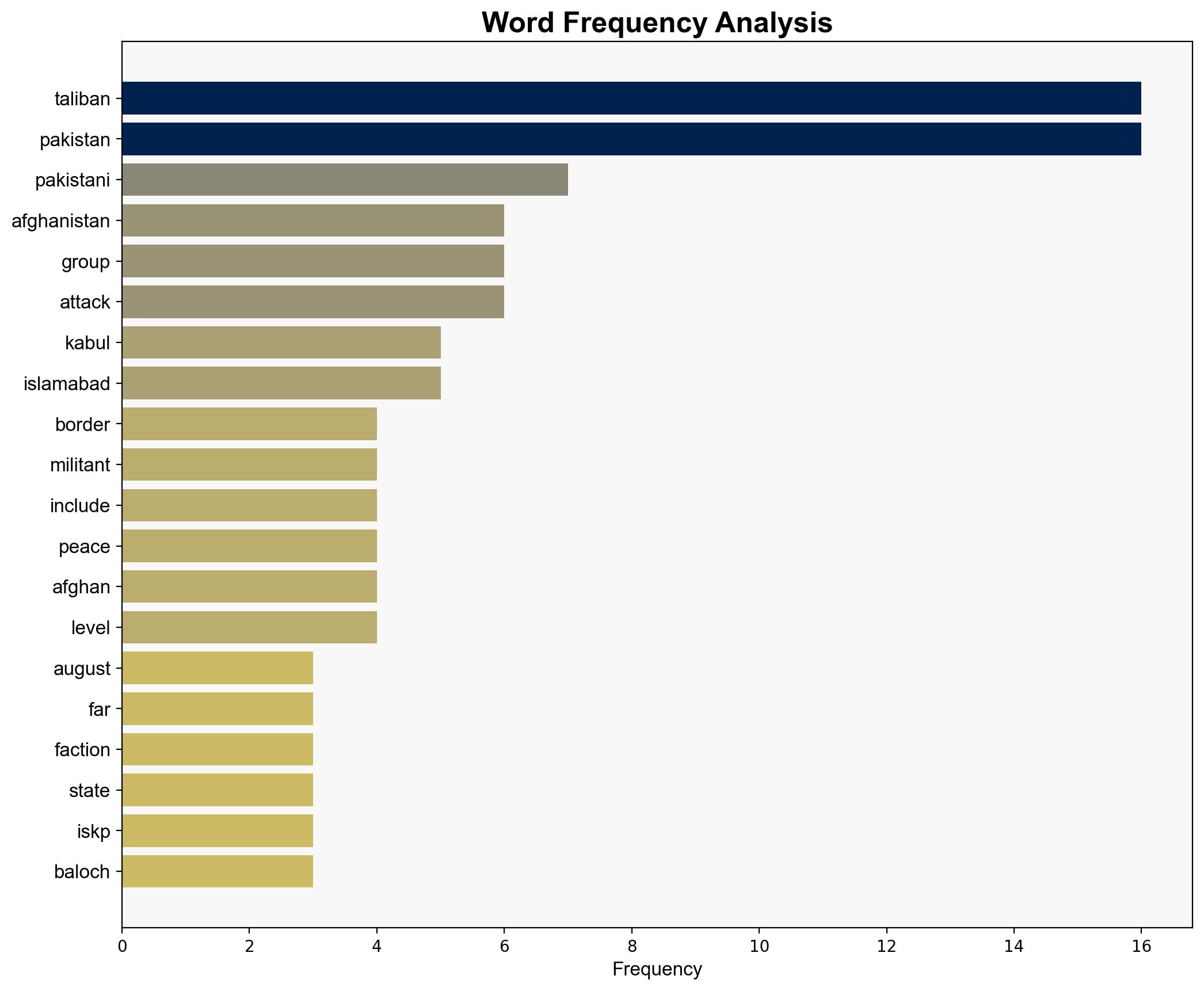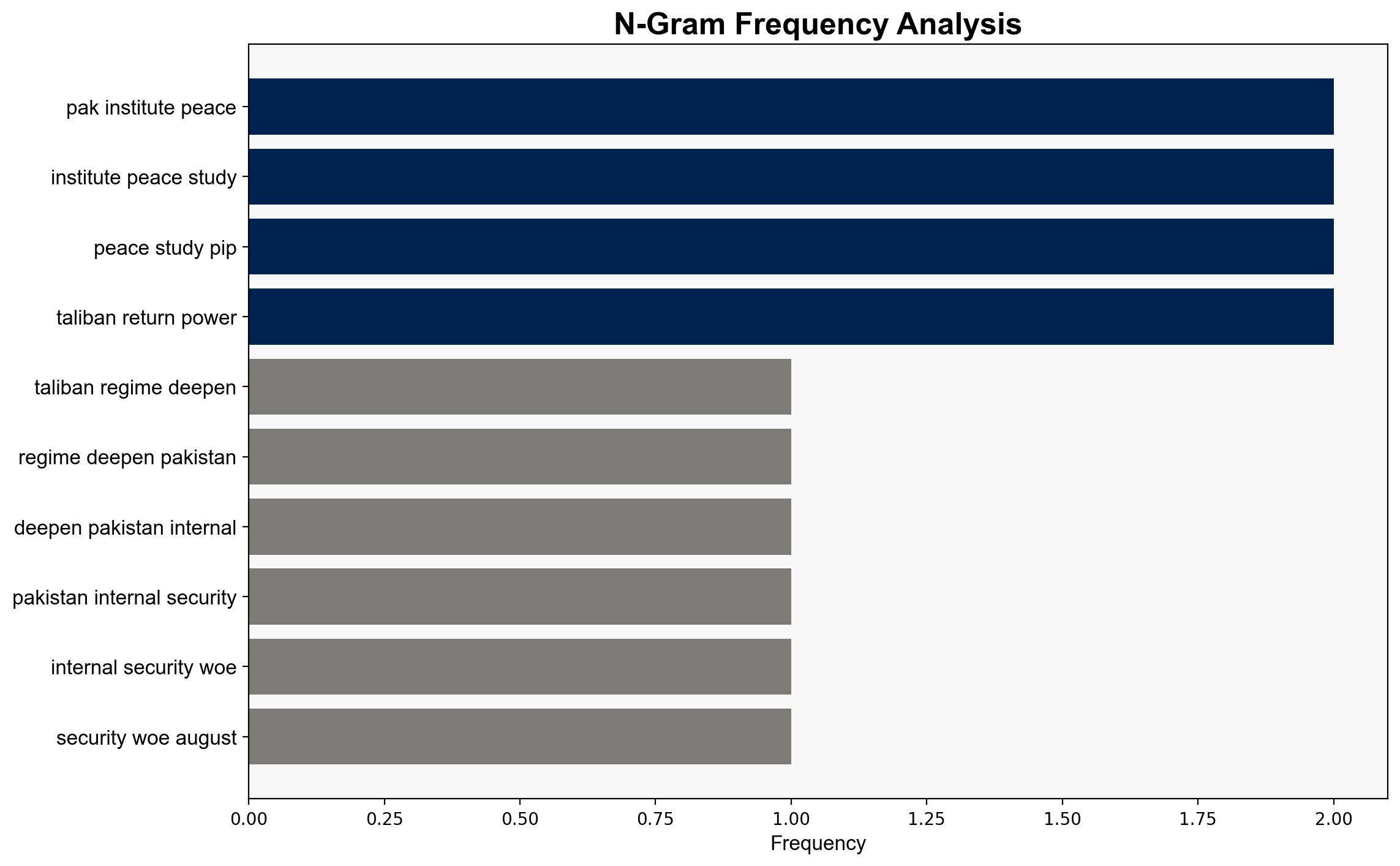Taliban regime deepens Pakistan’s internal security woes – DW (English)
Published on: 2025-08-14
Intelligence Report: Taliban regime deepens Pakistan’s internal security woes – DW (English)
1. BLUF (Bottom Line Up Front)
The resurgence of militant activities in Pakistan, following the Taliban’s takeover in Afghanistan, poses a significant threat to Pakistan’s internal security. The most supported hypothesis suggests that the Taliban’s return has emboldened various militant groups, leading to increased violence and instability in Pakistan. Confidence level: Moderate. Recommended action: Enhance intelligence-sharing and cross-border cooperation with Afghanistan to mitigate threats.
2. Competing Hypotheses
1. **Hypothesis A**: The Taliban’s takeover in Afghanistan has directly emboldened militant groups in Pakistan, leading to increased insurgency and violence.
2. **Hypothesis B**: The resurgence of violence in Pakistan is primarily due to internal factors, such as political instability and economic challenges, rather than the Taliban’s influence.
Using the Analysis of Competing Hypotheses (ACH) 2.0, Hypothesis A is better supported by the evidence, particularly the increased activity of groups like the Tehreek-e-Taliban Pakistan and ISKP, and the strategic shifts observed in militant operations.
3. Key Assumptions and Red Flags
– **Assumptions**: Hypothesis A assumes a direct correlation between the Taliban’s control in Afghanistan and militant activities in Pakistan. Hypothesis B assumes that internal factors are the primary drivers of violence.
– **Red Flags**: Potential bias in attributing all militant activities to external influences without considering internal dynamics. Lack of detailed intelligence on the operational capabilities of these groups.
– **Missing Data**: Comprehensive data on the Taliban’s logistical support to Pakistani militants is limited.
4. Implications and Strategic Risks
The convergence of multiple militant threats could destabilize Pakistan’s internal security, affecting regional stability. Economic impacts include potential disruptions to the China-Pakistan Economic Corridor (CPEC). Geopolitically, strained Pakistan-Afghanistan relations could hinder regional counter-terrorism efforts. The psychological impact on the civilian population may lead to increased public dissent and political pressure.
5. Recommendations and Outlook
- Enhance cross-border intelligence-sharing with Afghanistan to monitor and counter militant activities.
- Strengthen internal security measures and counter-terrorism operations within Pakistan.
- Engage in diplomatic efforts to improve Pakistan-Afghanistan relations, focusing on mutual security concerns.
- Scenario Projections:
- Best Case: Improved cooperation leads to a decrease in militant activities.
- Worst Case: Escalation of violence destabilizes the region, affecting economic and political stability.
- Most Likely: Continued sporadic violence with gradual improvement through diplomatic and security efforts.
6. Key Individuals and Entities
– Safdar Sial
– Tahir Khan
– Hazrat Ali
– Hafiz Gul Bahadur
7. Thematic Tags
national security threats, counter-terrorism, regional focus





